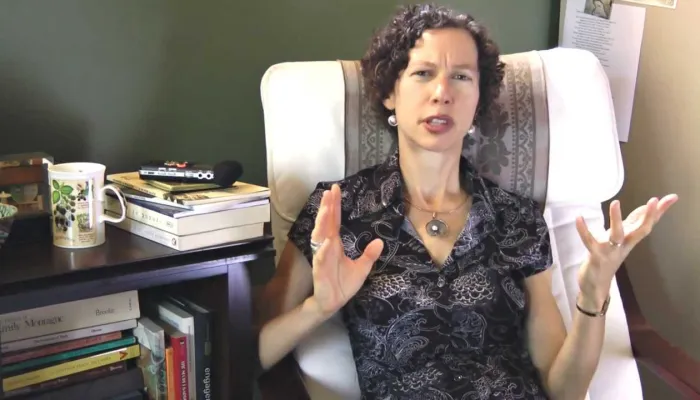Alison Smith
Biography
Alison Smith is the author of three books of poetry and one chapbook from Gaspereau Press. Her most recent collection, This Kind of Thinking Does No Good, was awarded the 2019 J.M. Abraham Award for Atlantic Poetry and shortlisted for the 2020 Nova Scotia Masterworks Arts Award. She has written for radio, the stage, and has taught poetry workshops in prison, schools and other community settings. Alison's poetry is by turns confessional, surreal, and gothic, confronting the realities of contemporary rural life with humour and courage. Alison also makes analog collages.
Micro-interview
Our family moved several times when I was a teenager and I spent a lot of time on my own, reading and writing poems. In the early days of one of our moves I memorized the entirety of “The Lady of Shallot” by Alfred Lord Tennyson. Also, “Do Not Go Gentle Into that Good Night” by Dylan Thomas. I loved the language and drama in both poems. In grade ten, I liked Michael Ondaatje’s The Collected Works of Billy the Kid so much that I stole the book from my school library. The librarian found out and very kindly offered to take another book as a trade. I also was very devoted to Alden Nowlan as a young reader. I loved how plainly he wrote about growing up poor in rural Nova Scotia.
My first memory of a specific poem I wrote has nothing to do with its content: I was watching it burn because my brother was waving it around and I was so embarrassed I grabbed it and threw it in the wood stove. I was in elementary school then. I probably started thinking of myself as a poet when I was a teenager. My junior high had a subject fair, where you could present any kind of project to the public and I made a book of original poems with collages. I remember feeling so much joy when I was putting it together. A bit later, when I was about 16, I used to get the 'dry' stamp and read my poems at the coffee house on campus at Acadia University. I was quite a shy person, but I think I knew I was a poet when I realized what a thrill it was to receive a direct response from an audience.
For me, the poet’s job is to observe and translate the world more keenly. The way that the poet uses language should help the reader to think differently and tell the truth in ways that we cannot in our day-to-day lives. Most of all, I think that it’s the poet’s job to bring the reader to the edge of unknowability that exists in everyone. As much as poetry can help us understand each other better, there is also a mystery that the poet should help us glimpse and respect.
I would memorize "That feeling of my soul getting yanked" by Kim Hyesoon. The images in her work are so startling and the notes of repetition would be interesting to work with. And what a last line!


